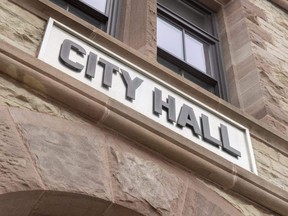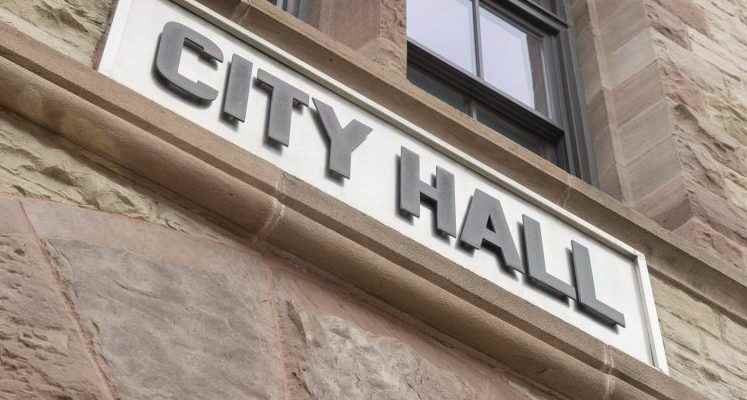A committee dedicated to reducing poverty in Oxford County is asking Woodstock city council to reduce bus fares for low-income residents.

A committee dedicated to reducing poverty in Oxford County is asking Woodstock city council to reduce bus fares for low-income residents.
With the rising cost of living affecting the region’s most vulnerable, the committee made up of concerned residents and social agencies is requesting the city explore ways to make transit more affordable.
“We’re seeing, and we know from evidence, transportation is a huge barrier. And it opens up so many doors for people, not just to get to shopping or employment, but even social aspects,” said Stephanie Ellens-Clarke, chair of Oxford’s reducing poverty together committee and executive director of Social Planning Oxford Council.
“The service that the city provides can be expanded to even more people if it was within an affordable range for them,” she said.
People living in poverty or with low income have little room in their budget for transportation, the committee said in a letter submitted to council this week.
For Brandon Roth, an Ontario Disability Support Program (ODSP) recipient, a $66 monthly bus pass isn’t an option because most of his income goes to housing and internet costs. Single adults on ODSP receive a little more than $1,000 a month.
“I just pay for my rent and my Rogers bill, and then I have nothing left because it’s so expensive,” said Roth, a tenant at one of Indwell’s affordable housing sites in Woodstock.
Roth said he pays the $2.70 ride fare to get to and from his volunteer job weekly but wants to start taking the bus daily so he can live more independently.
“If the (bus pass) didn’t cost so much, I could easily afford to get my own food and wouldn’t have to rely on my mother. That’s what I’m trying to do. I moved out to be independent,” he said.
The committee would like to see the city explore existing transit models that use the low-income cut-off (LICO) threshold or another poverty threshold to determine eligibility for affordable fares. In a Guelph pilot project, for example, the city’s transit system recently offered a monthly bus pass for as low as $4 a month for riders with the lowest incomes. The three-tier system also offered passes at $20 a month and between $31 and $37.50, depending on the rider’s age.
“We’re not saying one model is the best model. We’re saying that there are many communities doing this, and can we consider it? Would any of these work here? And have staff considered any kind of potential models?” Ellens-Clarke said.
-

Woodstock is growing, and so are problems for new council to tackle
-

Political rookie moves to reverse local city’s anti-homeless bench ban
Indwell, United Way Oxford, Southwestern Public Health, the Salvation Army, Oxford County Community Health Center and the Women’s Employment Resource Center are among the agencies involved in the committee. Its members are hoping councilors at Thursday’s meeting will pass a motion directing staff to examine ways to make a more affordable transit model.
Woodstock Mayor Jerry Acchione favors looking into reduced bus fares, including how the model would work. For example, “How do you determine who’s going to be eligible?” he asked.
He said transit is one area the city can explore to help alleviate inflationary pressures on residents.
“As a city,” Acchione said, “I don’t feel we can control grocery costs as easily. But one thing we can control is through our transit, and those riding the bus typically need the most help financially.”
count. Liz Wismer-Van Meer agreed, noting reducing prices for things such as transportation is something all municipalities should consider amid the higher cost of living.
“I definitely see the need,” she said.
twitter.com/CalviatLFPress
The Local Journalism Initiative is funded by the Government of Canada
